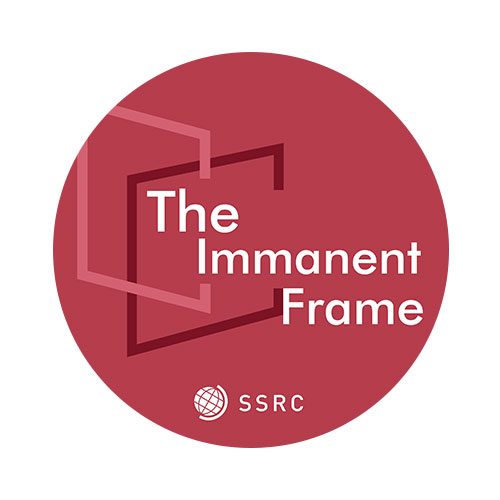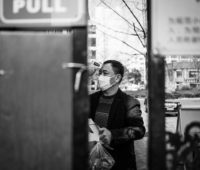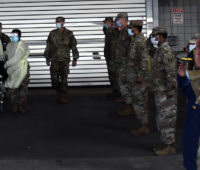Testing and models, medical and educational, have come under scrutiny during the Covid-19 pandemic. In particular, the coronavirus crisis has accelerated the conversation on the challenges of educational testing. Here, William Dardick looks at the reliability, validity, and fairness of educational assessments, and how these varied characteristics all factor into how policymakers employ testing and their results.
Starting with SSRC president Alondra Nelson’s reflections on “Society after Pandemic,” this series of essays explores the human, social, political, and ethical dimensions of Covid-19. These pieces call attention to how social research can shed light on the short- and long-term effects of the pandemic and what can be done to improve responses, both now and in the future.
The publication of this series would not be possible if not for the help of the following SSRC staff:
Juni Ahari, communications and editorial assistant.
Cole Edick, program associate, Anxieties of Democracy and Media & Democracy programs.
Carrie Hamilton, program assistant, Social Data Initiative and Media & Democracy program.
Saarah Jappie, program officer, Transregional Collaboratory on the Indian Ocean.
Michelle Lee, program assistant, International Dissertation Research Fellowship.
Line Sidonie Talla Mafotsing, communications and editorial assistant, African Peacebuilding Network and Next Generation Social Sciences in Africa.
Daniella Sarnoff, program director, International Dissertation Research Fellowship.
Catherine Weddig, program assistant, Social Data Initiative and Media & Democracy program.
Themes
Essays

Too Sad to Vote? Mental Health’s Impact on Political Participation during the Covid-19 Crisis
by Claudia Landwehr, Christopher Ojeda and Oliver TüscherClaudia Landwehr, Christopher Ojeda, and Oliver Tüscher ask how the effects on mental health from the Covid-19 crisis might be related to political participation. Drawing on recent studies, they find a strong relationship between the Covid-19 crisis and depressive symptoms. Holding this evidence up against US and European surveys demonstrating lower probability of voter turnout with increasing depressive symptoms, they suggest that Covid-19 may decrease political participation via declining mental health. They call for new strategies for mitigating depression’s impact on political participation and to reinvigorate participation in its aftermath.

Mediating Negative Narratives about Race in the Black Press and Social Media in a Public Health Crisis
by Kim GallonThe Black Press in the United States has a long history of countering negative racialization of Black people’s health. In keeping with this history, the Black Press was among the first voices to productively racialize the public health crisis of the coronavirus pandemic, highlighting the long-standing health disparities stemming from centuries of structural inequality. This productive racialization of public health—which extends to social media—constructs intersectional counternarratives, defying histories that position people of color as hosts of disease.

Dangers and Opportunities in the Coronavirus Crisis: US-China and China-Japan Relations
by Zheng WangIn Zheng Wang’s contribution to our “Covid-19 and the Social Sciences” series, he examines how the pandemic shapes relations between countries when governments deploy it as a symbolic tool of statecraft. He first discusses how a rhetoric of blame for the spread of the coronavirus has deepened tensions between China and the United States. He then contrasts this with the interactions between China and Japan in the early stages of the pandemic. Japan’s provisions of masks to China, and the use of a Chinese poem on the shipping packages, helped reduce tensions in a relationship historically marked by distrust and suspicion.

War of the Worlds: Covid-19 and Pandemic Belligerence
by Robert PeckhamWhat does it mean to wage a war against disease? Martial metaphors have pervaded the news since January 2020 when the coronavirus began to spread, from the rhetoric of political leaders to the imagery around the effort to contain the virus. Joining Jenny Reardon and Tim Hwang in examining these militaristic metaphors, Robert Peckham argues that such metaphors prevent us from engaging with the complexity of the pandemic and its long-term effects.

Placing the Pandemic in Time: Astrology and Covid-19
by Omri ElishaMany Americans have turned to astrology, the study of correlations between celestial patterns and temporal events, to make sense of tumultuous times. Despite reports of popular astrologers called out for failing to predict Covid-19, astrological services are in high demand. From private consultations to horoscopic forecasts across multiple media, people are eager to know when the pandemic will end and how it will affect their lives in the long run.

Covid-19, Ebola, and the Ethnographic Distance
by Ilmari KäihköFor the “Covid-19 and the Social Sciences” series, Ilmari Käihkö reflects on the effects of distance. Mirroring the author’s experience of research impacted by the Ebola epidemic in Liberia, Covid-19 too has forced a reckoning with the emergence of “new normalities” and the physical and social distancing imposed by viruses. Käihkö not only considers the work of ethnography from a distance, but also weighs the effects—and affects—of researching and writing in isolation.

Misinformation is Everybody’s Problem Now
by Joan Donovan and Claire WardleMisinformation can be deadly. The Covid-19 pandemic has demonstrated that fact clearly and tragically. While the big tech companies have taken some steps to rein in misinformation and make credible organizations more visible, they lag far behind the pundits, scammers, and extremists who abuse trust on a global scale. It’s time for companies and researchers to take risks, make bold experiments, and rigorously test ways to slow the speed and spread of deadly deceptions.

Health Econometrics and the Covid-19 Pandemic
by Bryan DowdThe Covid-19 pandemic has highlighted epidemiological reliance upon models and statistics for understanding the impact and spread of the disease. Given the convergence of health and economics, it proves worthwhile to explore the origins, techniques, and status of econometric models as tools for health policy. For the “Covid-19 and the Social Sciences” series, Bryan Dowd recounts the history of econometrics and describes recent developments, showing that it has become a standard tool for analyzing data and informing policy decisions.

Research Supporting Policy, A Historical Perspective
by Moshe Justman and Items AdminFor the “Covid-19 and the Social Sciences” series, Moshe Justman asks whether there may be tradeoffs in a model’s precision and its ability to inform policy. Justman explores the rise of randomized control trials (RCTs) in economics as the “gold standard” for inferring causality, and provides a detailed account of Project STAR—a landmark RCT study in education. A lesson for research informing policy on Covid-19, he argues, is that the messier models of epidemiologists are more useful to practitioners than the purportedly more rigorous RCTs designed by health economists.










